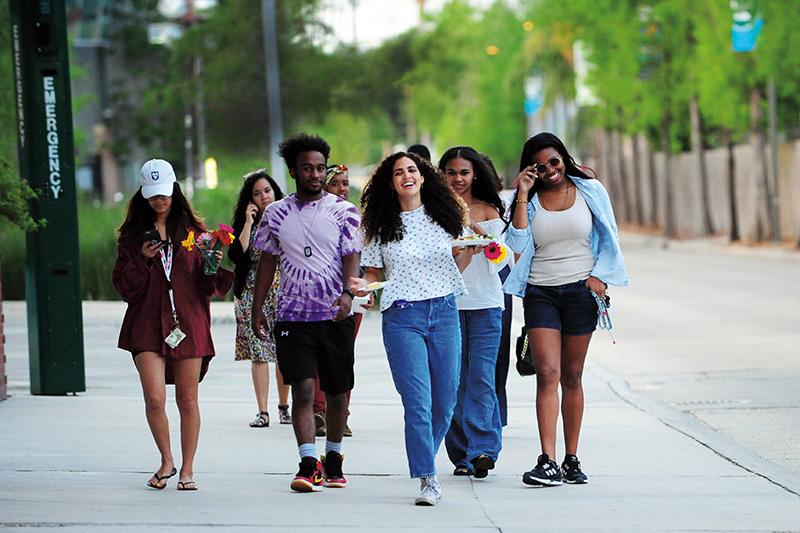Diversity makes Tulane stronger and smarter
“I was one of them.”
It’s easier to know what a person is going through when you’ve already walked a mile in their shoes.
That’s what makes Satyajit Dattagupta, vice president for enrollment management and dean of undergraduate admission at Tulane, a key, informed component in the university’s effort to diversify its student population.
Dattagupta, who joined Tulane in 2016 to lead the admissions team, grew up in Mumbai, India. He is the product of a middle-class family who depleted their savings to send him to the United States for a college education.
“My dad used his life savings to send me abroad. It was a huge gamble to take all of his livelihood and invest in this confused 17-year-old,” recalls Dattagupta. “But knowing my family’s sacrifice also let me know that I had to do well.”
Dattagupta says he is aware that “knowing the sacrifice” for some students may serve as a motivation to excel, while for others, the sacrifice can feel too great of a burden to place on their families.
To ease the worry of parents and students, Dattagupta often shares his personal story to show that he fully understands their concerns. In fact, his story is one that proves that plans don’t always turn out exactly as they are envisioned.
“I came to the United States to major in computer science. That’s what I received a degree in,” says Dattagupta. “My family expected that I would get a job as a computer programmer, but instead I found a career where I can help match students to the right university.”
This, he does well.
In his first few months at Tulane, Dattagupta made a sweeping change to Tulane’s admission office. He hired a new, fully diverse staff to help with the university’s recruitment of low-income students, first-generation students, students of color and international students.
Since then, there have been new programs put in place to cater to these groups including Bienvenue Tulane, a program that helps potential and admitted students in underserved populations with the cost of airfare for a campus visit.
Diversity at Tulane is a work in progress, but the opportunity for students from underrepresented backgrounds is improving through several new initiatives including those from the Office of Admission and the Center for Academic Equity, which was created to provide guidance for these students from their first day through graduation.
“My dream for admissions is to take away the financial gap between the cost of the university and what students can pay,” says Dattagupta.
Once a student is admitted, the goal is to keep them from changing their minds because of finances.
“I can accept if they choose another university because Tulane isn’t the right fit,” says Dattagupta. “It won’t be a great fit for everyone. But choosing another university because they can’t afford Tulane should not be on the table.”
Last year, Tulane admission saw a jump from 18 percent students of color to 21 percent and an increase from 3 percent enrolled international students to 5 percent.
Click here to read the full article.
Editor's note: This article appeared first in the March 2018 issue of Tulane magazine.

